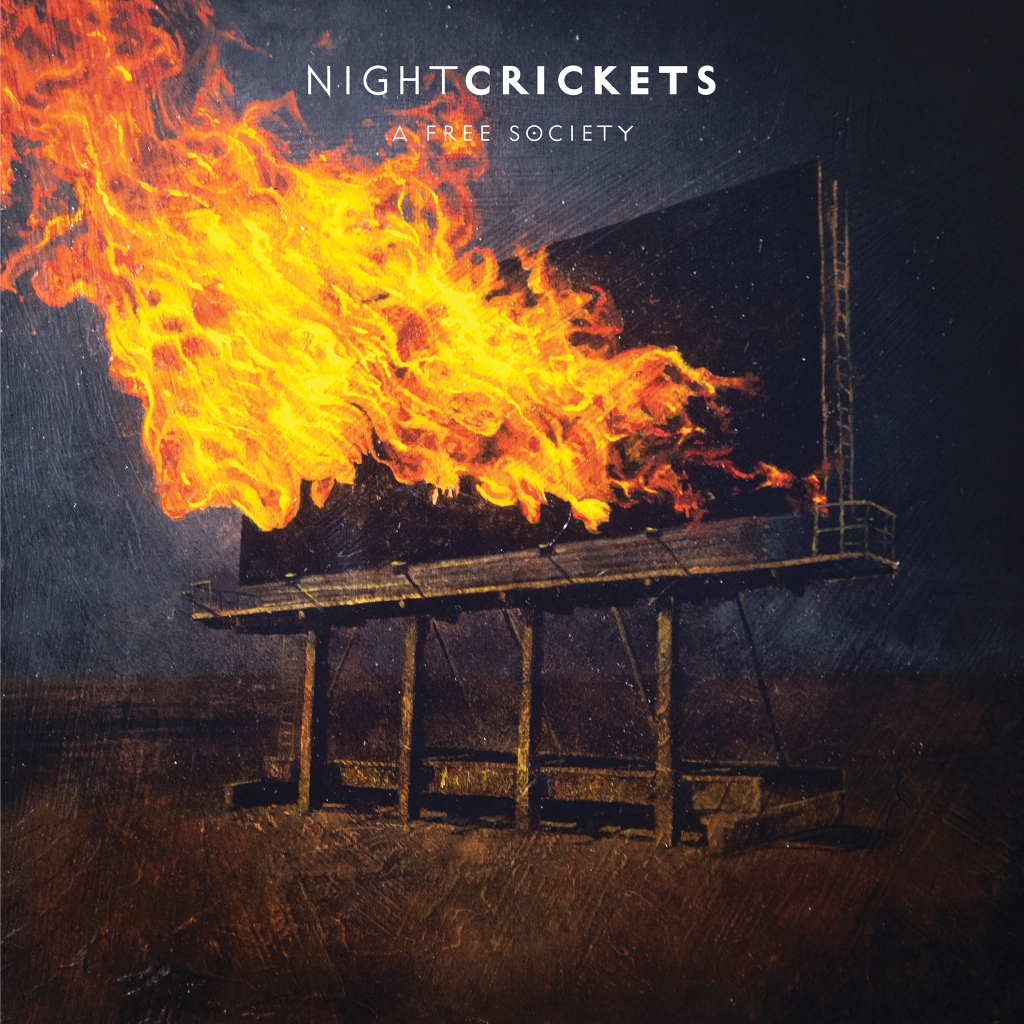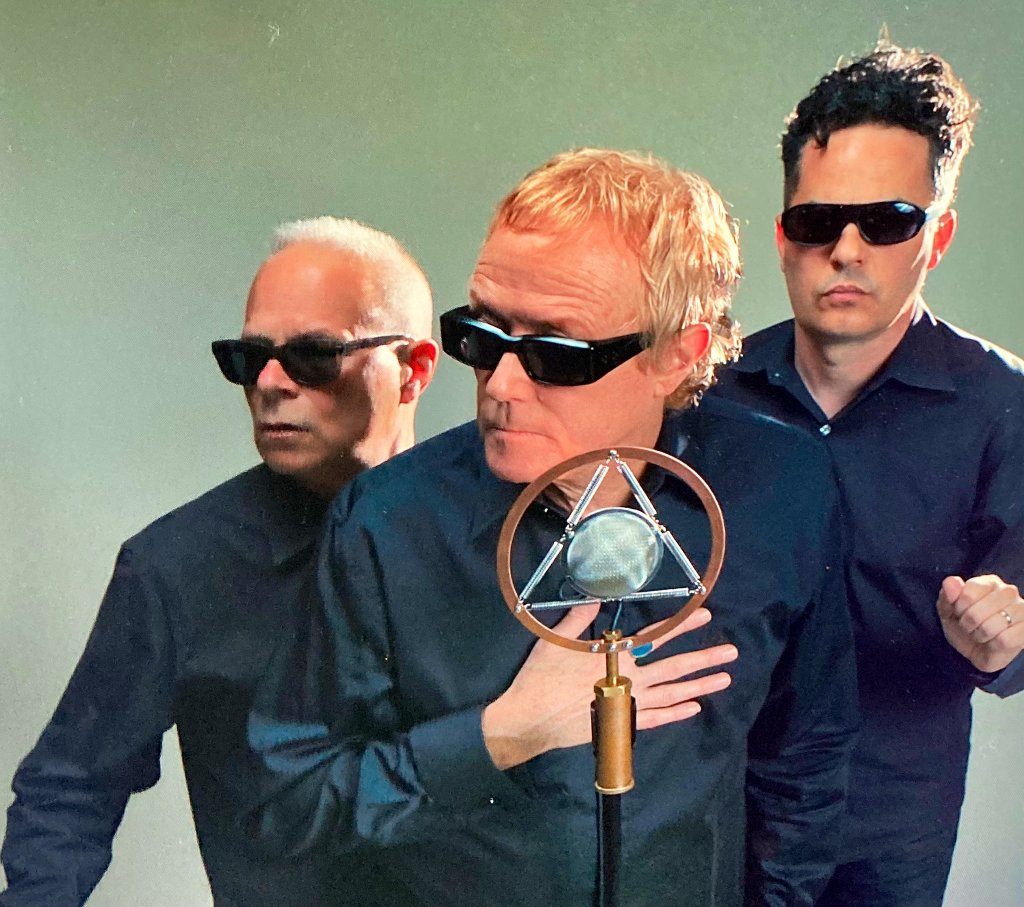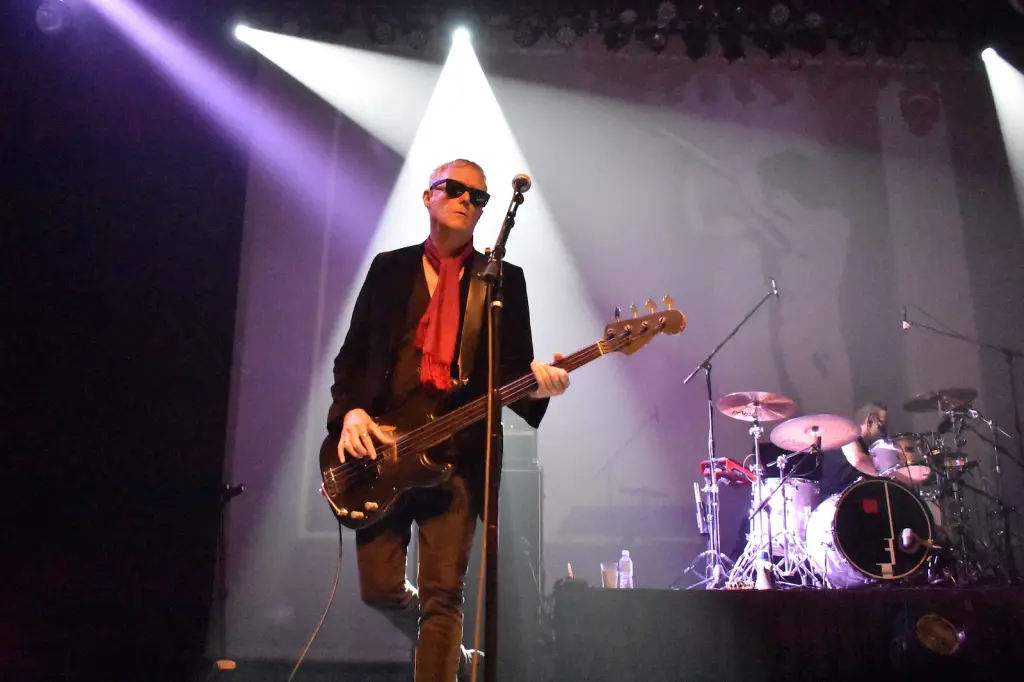All images courtesy of Reybee, Inc. PR
Bassist David J has had a heavy hand in creating iconic records with Bauhaus and Love & Rockets. And in 2022, it seems the epochal is at it again with Night Crickets.

By Andrew Daly
andrew@vinylwriter.com
Northampton native and bassist extraordinaire David J’s impact on alternative music can be challenging to measure.
As a member of the gothic rock band Bauhaus and later with Love & Rockets, David J progressively rejiggered old notions and outdated ideas, breaking ground for a music scene bursting with droves of talented bands.
In addition, through numerous singles and solo records, David J has kept himself moving forward, never stagnating or settling into one musical pasture for too long. Be it with Bauhaus in the live setting or via his film scores, one thing is sure, David J is an innovator who sees the world through a unique lens.
For his most recent project, David J is rolling out yet another record’s worth of outstanding and thought-provoking indie music, A Free Society. Paired with Victor DeLorenzo of the Violent Femmes and producer Darwin Meiners, the trio’s group Night Crickets is set to add much-needed depth to an often too-smooth music scene.
With A Free Society now in the can, David J settled in for a brief chat to discuss the record’s inception, his approach to the bass, what’s next for him, and beyond.
What first sparked your interest in music?
I was in the hospital, recovering from a badly broken leg, the result of a football injury, when T. Rex’s “Hot Love” came on the radio, and I went into a kind of ecstatic trance. When I came out of it a few minutes later, I knew I wanted to be a musician, not a footballer. [Laughs]. The first gig I went to was Wings at the Leicester De Montford Hall in 1974, shortly followed by The Kinks at the London Palladium. And then, two years later, I saw The Sex Pistols and The Clash at the 100 Club in London, and nothing was ever the same again.
How have you evolved in the years since?
The aforementioned T. Rex, of course, was a huge influence on me, as well as [David] Bowie, Roxy Music, Mott The Hoople, the Rolling Stones, The Beatles, and Bob Dylan. And a bit later came artists like Nick Drake, Leonard Cohen, and The Velvet Underground. I also loved reggae, which was really the thing that got me into playing bass guitar. But since then, I’ve made a quantum leap on guitar, especially when I got into open tunings; that really opened up a whole new world of possibilities when it came to songwriting.
Walk me through the formation of Night Crickets.
Darwin [Meiners] and I saw The Violent Femmes at Coachella in 2013, and Darwin met Victor [DeLorenzo] after their set. They hit it off and exchanged emails. Darwin then suggested to Victor that they collaborate on some music, and Victor then asked if I could be involved, and I told him I could!

What can you tell me about the Night Crickets’ new record, A Free Society?
We simply traded files via remote and took turns adding parts. We kept going until we all felt that a track was done, then moved on to the next one. We had a real flow going, and soon, we realized that we had made an album. One of which we are very proud of. For my part, my songs have always been directly related to whatever is going on in my life. It’s a way of processing experiences and then drawing out
the poetry. Basically, Darwin mixed the album with Victor, and I gave him detailed notes that he respectfully took on board.
How has your work with Love & Rockets and Bauhaus influenced this project?
It was much easier to make the Night Crickets album than, say, a Bauhaus record. A lot of Bauhaus’ music was borne of edgy conflict and confrontation, whereas A Free Society is the product of copacetic egoless collaboration. I hear quite a lot of similarities to Love & Rockets, much more so than Bauhaus. The use of acoustic guitars combined with electronic elements, as well as contrasting multi-layered electric guitars, double-tracked vocals with harmonies, and keyboards, all go towards the creation of a similar overall tone. A big difference this project affords compared to anything with Bauhaus, though, is harmony. [Laughs].
Will the material get any time on the live circuit? How do you keep the fire burning to get out on the road?
It’s quite possible, and I must say that I do kind of relish the challenge of playing what is essentially a studio album in a live setting. As far as keeping the fire burning, I do that by not trying to. It just happens, it’s always inside of me, and I don’t need to try.
Describe your approach to the bass guitar and how it changes from project to project.
It’s very, very spontaneous. For example, when making the Night Crickets album, I would purposely never listen to Victor’s drums until it was time to record my part. I wouldn’t even listen before doing a take, and it was rather uncanny as I would find myself playing a bass line just before the red light came on, and it would fit perfectly. This is an approach that I have been employing for several years now, and I find that it works very well. It’s all about entering into a kind of inspired liminal state of mind and taking a leap in the dark. It’s about trusting yourself, and it’s really only possible to achieve this after many years of playing.
What’s next for you in all lanes, David?
Well, I’m happy to opine that rock is a healthy and weird mutant. For those wondering if there will be a new Bauhaus album, the answer there is “NO!.” I just want to keep on challenging myself, stretching, and exploring. I have a natural inclination to stray from the safety of the well-worn path and to venture into territory that is a bit unsettling and uncomfortable. That is where the magic is, and music is nothing
without magic.

– Andrew Daly (@vwmusicrocks) is the Editor-in-Chief for www.vwmusicrocks.com and may be reached at andrew@vinylwriter.com





Leave a Reply